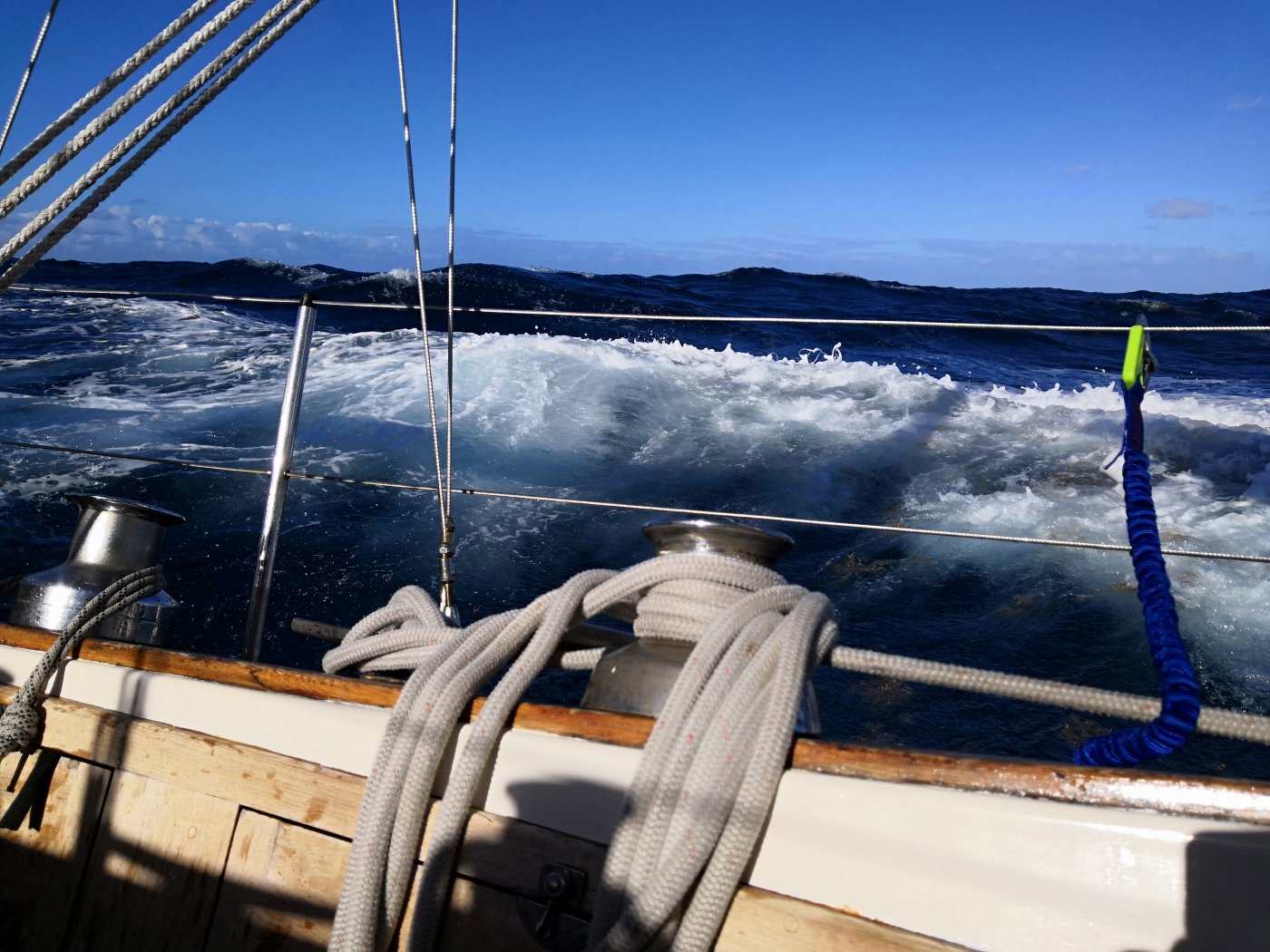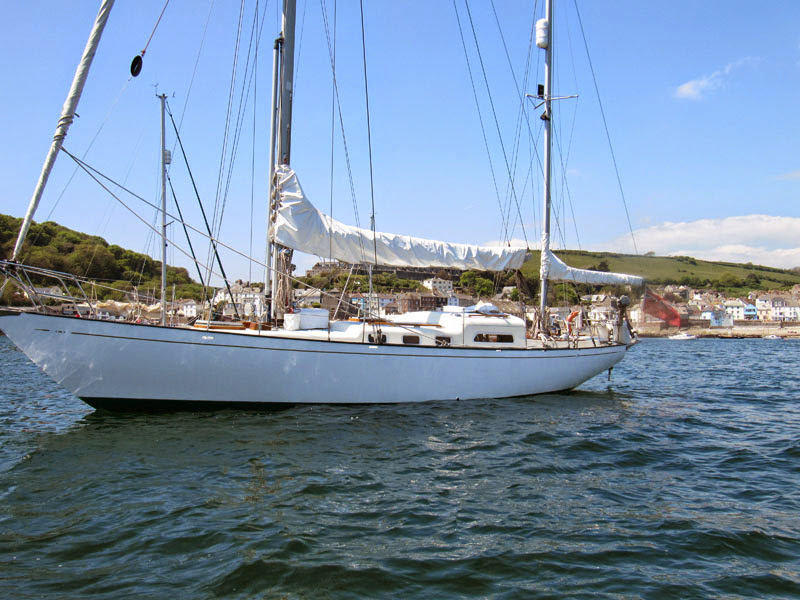
Home run begins for Boatshed team on the Atlantic Rally Challenge
Boatshed CEO, Neil Chapman and Curt Mundy have now been joined by Curt’s niece, Shea, for the Bermuda-Azores leg of the ARC Europe Rally. On board the 41-foot Van de Stadt-Rebel 41 ketch ‘Supertaff’ owned by Neil and his wife Mandy, captain and crew are making good progress – the 1800 mile trip has seen the boat averaging 120 miles per day – as they head for their first landfall at the Azores since leaving Bermuda on May 15.
From Neil’s regular reports back to Boatshed HQ, apart from the odd squall, there has been little drama on the high seas. But plenty of incredible scenery...even if it’s just sky and sea!
May 21st – and 1170 miles to go!
By Neil Chapman
The visual experience out here remains as fantastic as our previous crossing. Phosphorescence in the water, dolphins, beautiful sea birds and skies that stretch forever and include every shade of grey, purple and orange you can imagine.
It's easy to forget this as you type out emails like this and focus on weather and the practical and domestic chores of life afloat, but it is the absolute stunning drama and beauty of the surroundings that makes the experience completely different from anything else you can possibly experience on earth.
I still find myself simply staring out at everything: captivated and hypnotized by it all.

Time to take stock
On a more practical level, supplies of food and water are standing up well. Looking at the long range forecast then fuel may become an issue later on but at this stage we have plenty.
We need the diesel for charging batteries as well as propulsion, so if we get low we will restrict propulsion and sail more. This we do already, but currently if boat speed drops below 4 knots we motor along. We can adjust this to a 3-knot limit and it will make a significant contribution to fuel economy.
Once we have eaten our fresh meat and food we can use less fridge time, as this remains the single largest item of power consumption on the vessel and takes a significant portion of our twice-daily engine-charging regime.
Another exercise I have been doing is writing a list of all the things I would change or improve on the boat for the next Atlantic Circuit. Interestingly, there is very little on the list that I would change.
Most of my items are related to what has worked well on this current Atlantic mission. I would not wish for more complex items such as a generator or water maker. Our KISS approach (keep it simple stupid) to sailing aboard ‘Supertaff’ continues to work well but I would change items that have had significant use this time and swap them out to avoid possible problems in future.
New batteries, fix a couple of deck leaks and hatches, engine mounts and so on. Surprisingly the list is quite small. The biggest topic of conversation (in fact most boaters talk of nothing else) has been gear and systems that have broken or need parts. Equipment like bow thrusters, generators, water makers and various electronics, for example.
My feeling has been that if you can manage without the complexity then your sailing is going to be less stressful because of it. If you can imagine a "camping on water" approach versus "all the luxuries of home" philosophy then you can understand the difference.
I tried to explain my thoughts to a German owner, whose boat was hauled in Bermuda with a huge list of problems around the ‘philosophy’. But he looked at me as if I were mad. I also worry that my thoughts may upset my colleagues in the marine industry but let's hope everyone can reach a balance between the two in future and get on with enjoying some great cruising and sailing, plus enable more people to be able to experience trips like this too.
Keep tracking back for more information and updates!

